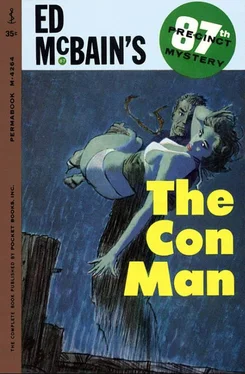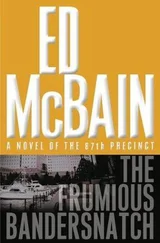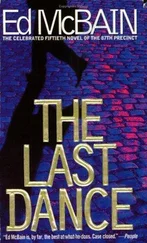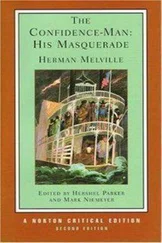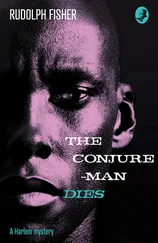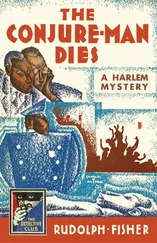Ed McBain - The Con Man
Здесь есть возможность читать онлайн «Ed McBain - The Con Man» весь текст электронной книги совершенно бесплатно (целиком полную версию без сокращений). В некоторых случаях можно слушать аудио, скачать через торрент в формате fb2 и присутствует краткое содержание. Город: New York, Год выпуска: 1962, Издательство: Perma Book, Жанр: Полицейский детектив, на английском языке. Описание произведения, (предисловие) а так же отзывы посетителей доступны на портале библиотеки ЛибКат.
- Название:The Con Man
- Автор:
- Издательство:Perma Book
- Жанр:
- Год:1962
- Город:New York
- ISBN:нет данных
- Рейтинг книги:5 / 5. Голосов: 1
-
Избранное:Добавить в избранное
- Отзывы:
-
Ваша оценка:
- 100
- 1
- 2
- 3
- 4
- 5
The Con Man: краткое содержание, описание и аннотация
Предлагаем к чтению аннотацию, описание, краткое содержание или предисловие (зависит от того, что написал сам автор книги «The Con Man»). Если вы не нашли необходимую информацию о книге — напишите в комментариях, мы постараемся отыскать её.
The man was tall, blond, handsome — a powerhouse of strength and sex. Women gave him whatever he wanted.
And he made some strange requests.
After seducing a woman, he would ask her to have a small heart tattooed on her hand, to show the world that she belonged to him.
When the woman had been thus branded as his property — he murdered her.
The Con Man — читать онлайн бесплатно полную книгу (весь текст) целиком
Ниже представлен текст книги, разбитый по страницам. Система сохранения места последней прочитанной страницы, позволяет с удобством читать онлайн бесплатно книгу «The Con Man», без необходимости каждый раз заново искать на чём Вы остановились. Поставьте закладку, и сможете в любой момент перейти на страницу, на которой закончили чтение.
Интервал:
Закладка:
Dave lunged with the broken bottle. He passed low, aiming for Carella’s groin. A look of surprise crossed his face when he felt Carella’s right hand clamp onto his wrist. He felt himself falling forward suddenly, pulled by Carella who had stepped back lightly on his right foot, and who was raising his left hand high over his head, the hand still stiff and rigid.
And then Carella’s left hand descended. Hard and straight, like the sharp biting edge of an ax, it moved downward with remarkable swiftness. Dave felt the impact of the blow. The hard, calloused edge of Carella’s hand struck him on the side of his neck, and then Dave bellowed and Carella swung his left hand across his own body, and again, the hand fell, this time on the opposite side of Dave’s neck, and he fell to the floor, both arms paralyzed for the moment, unable to move.
Carella stood over him, waiting.
“Lay... lay off,” Dave said.
The waiter stood at the entrance to the dining room, his eyes wide.
“Get the police,” Carella said, his voice curiously toneless.
“But—” the waiter started.
“I’m a detective,” Carella said. “Get the patrolman on the beat. Hurry up!”
“Yes,” the waiter said. “Yes, sir.”
Carella did not move from where he stood over Dave. He did not once look at Teddy. When the patrolman arrived, he showed his shield and told him to book Dave for disorderly conduct, generously neglecting to mention assault. He gave the patrolman all the information he needed, walked out with him to the squad car, and was gone for some five minutes. When he came back to the table, the elderly couple had gone. Teddy sat staring at her napkin.
“Hi,” he said, and he grinned.
She looked across the table at him.
“I’m sorry,” he said. “I didn’t want trouble.”
She shook her head.
“He’ll be better off locked up for the night. He’d only have picked on someone else, hon. He was spoiling for a fight.” He paused. “The next guy he might have succeeded in cutting.”
Teddy Carella nodded and sighed heavily. She had just had a visit to her husband’s office and seen him at work. And she could still remember the terrible swiftness of his hands, hands which she had only known tenderly before.
And so she sighed heavily because she had just discovered the world was not populated with gentle little boys playing games.
And then she reached across the table, and she took his right hand and brought it to her mouth, and she kissed the knuckles, and she kissed the palm, and Carella was surprised to feel the wetness of her tears against his flesh.
Eleven
It was unfortunate, perhaps, that Arthur Brown was so zealous in his pursuit of the con man. Had he not been such an eager beaver, he would not have asked to replace Carella when Carella drew Lineup that week. Lineup means a trip downtown to Headquarters on High Street, and Lineup means sitting in a room with a pile of other detectives from all over the city, watching the parade of felony offenders. Lineup is sometimes exciting; usually, it’s a bore.
Brown, as it happened, had just held his personal lineup in the squad room of the 87th Precinct, whereat he paraded Frederick “Fritzie” Deutsch before a little Negro girl named Betty Prescott and a big businessman named Elliot Jamison. Both victims had cleared Deutsch at once. He was not the man (or in Jamison’s case, either of the men) who had conned them. Brown was secretly pleased. He had thanked both Miss Prescott and Mr. Jamison and then clapped Deutsch on the back and gruffly said, “Keep your nose clean.”
And then he had asked Carella if he could take his place at the lineup the next day. Carella, who considered the lineup a necessary evil — something like a mother-in-law who comes to live with you — readily relinquished the duty. Had Carella been the sort of cop who loved Lineup, had Carella been more conscientious, more devoted to detail, had Carella felt any real purpose would be served by his appearance at Headquarters that Wednesday, things might have worked out differently.
Actually, Carella was conscientious, and he was devoted to detail — but he was up to his ears in floaters and the lineup very rarely turned up any good murder suspects. His time, he assumed, could be better spent in a thorough rundown of the city’s tattoo parlors in an effort to track down the NAC that had appeared on the second floater’s hand.
So he allowed Brown to take his place, and that was most unfortunate.
It was unfortunate in that there were two handsome blond men who were shown at the lineup that Wednesday.
One of them had killed Mary Louise Proschek and the second unidentified floater.
Brown was interested, at the moment, in con men — not murderers.
Carella was interested in tattoo parlors.
Kling was a new cop.
He accompanied Brown to Headquarters on that Wednesday. The city was, again, blanketed with a dreary drizzle, and the men spoke very little on the long ride downtown. Kling, for the most part, was thinking of breaking his vacation date to Claire and wondering how she would react to it. Brown was thinking about his con man, who had acted singly once and in concert a second time, and wondering if the lineup would turn up anything. Brown drove slowly because of the slick pavement. They did not reach Headquarters until 9:05. By the time the elevator had taken them to the ninth floor, the lineup had been underway for some ten minutes. They pinned their shields to their jackets and passed through the patrolman outside at the desk in the corridor. The patrolman said nothing. He simply looked at his watch condemningly.
The large gymnasium-like room was dark when they entered it. The only area of light was at the far end of the room, where the stage was brilliantly illuminated.
“...third stickup in 1949,” the chief of detectives said from his dais behind the rows and rows of folding chairs upon which detectives from every precinct in the city sat. “Thought we’d cured you that time, Alphonse, but apparently, you never learn. Now how about that gas station last night?”
The man on the stage was silent. The microphone hung before his face on a solid steel pipe, and the graduated height markers on the wall behind him told the assembled bulls that he was five foot eight.
Kling and Brown made their way unobtrusively past the dais and speaking stand and then shuffled into one of the rows, sitting as quickly and quietly as they could.
“I’m talking to you, Alphonse,” the chief of detectives said. “Never mind the latecomers,” he added sarcastically, and Kling felt a hot flush spread over his face.
“I hear you fine,” Alphonse said.
“Then how about it?”
“I don’t have to say nothing at a lineup, and you know it.”
“You’ve been to a lot of lineups, huh?”
“A couple.”
“On these other stickups?”
“Yeah.”
“Never thought you’d be here again on a stickup, did you?”
“I got nothing to say,” Alphonse said. “You got to prove there was a stickup and that I done it.”
“That shouldn’t be too hard,” the chief of detectives said. “It might go a little easier on you if you told us what we wanted to know, though.”
“Snow jobs I can do without so early in the morning,” Alphonse said. “I know the setup. Don’t ask questions, ’cause I know I don’t have to answer them.”
“All right,” the chief of detectives conceded. “Next case.”
Alphonse walked off the stage, his movements followed by every eye in the room. For the purpose of these Monday-to-Thursday, early-morning parades was simply to acquaint every detective in the city with the men who were committing crime in their city. Sometimes, a victim was invited to the lineup in an attempt to identify a suspect, but such occasions were rare and usually fruitless. They were rare because a victim generally had a thousand good reasons for not wanting to be at the lineup. They were usually fruitless because a victim generally had a thousand good reasons for not wanting to identify a suspect. The least valid of these reasons, if the most popularly accepted, was fear of reprisal. In any case, not many suspects were identified by victims. Were this the sole purpose of the lineup, the whole affair would have been a dreadful flop. On the other hand, the bulls who congregated at headquarters every Monday-to-Thursday morning — as much as they disliked the task — studied the felony offenders of the day before with close scrutiny. You never knew when you’d get a lead to the case you were working on. And you never knew when it might be important to recognize a cheap thief on the street. Such recognition might, in rare cases, even save your life.
Читать дальшеИнтервал:
Закладка:
Похожие книги на «The Con Man»
Представляем Вашему вниманию похожие книги на «The Con Man» списком для выбора. Мы отобрали схожую по названию и смыслу литературу в надежде предоставить читателям больше вариантов отыскать новые, интересные, ещё непрочитанные произведения.
Обсуждение, отзывы о книге «The Con Man» и просто собственные мнения читателей. Оставьте ваши комментарии, напишите, что Вы думаете о произведении, его смысле или главных героях. Укажите что конкретно понравилось, а что нет, и почему Вы так считаете.
